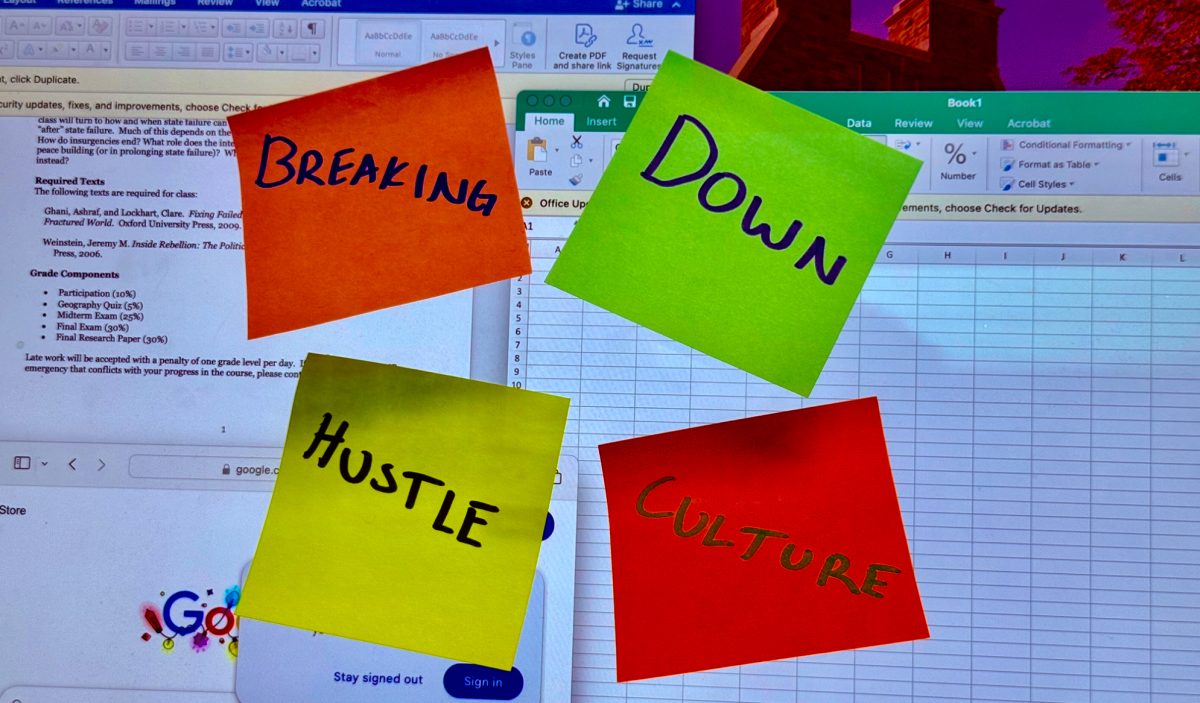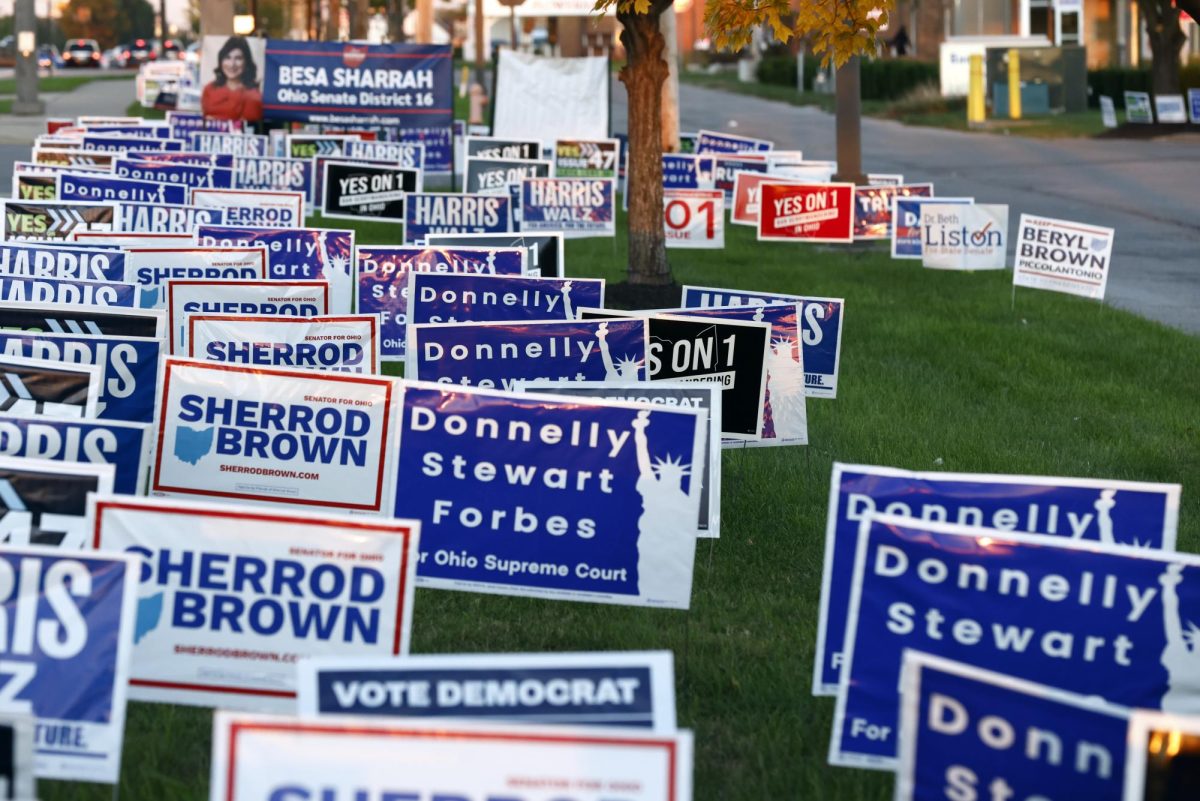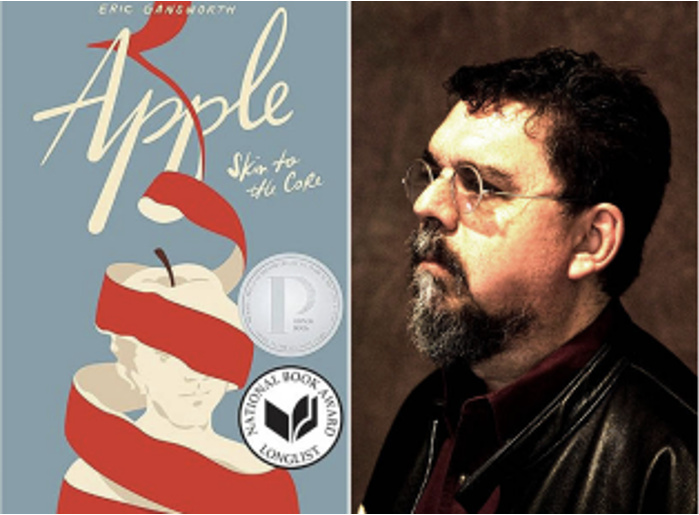When former President Donald Trump declared that “they’re eating the pets of the people that live [in Springfield, Ohio,]” during ABC’s Sept. 10 presidential debate, I noticed that the presidential watch party in the O’Connor Campus Center (the Coop) at Colgate University erupted in laughter. This response speaks volumes, in my opinion, about the disinterest in the cultural implications of such inflammatory rhetoric. More than just a moment of levity, this reaction highlights what I see as a troubling trend: a lack of sincerity, authenticity and responsibility in engaging with our diverse society.
By suggesting that immigrants pose a direct threat to cherished symbols of American life — our pets — Trump taps into deep-seated anxieties about cultural displacement. This rhetoric positions “the other” as a menace, creating a narrative that fosters division rather than understanding. Trump’s statement reflects a trend of fear-mongering that has become increasingly prevalent in political discourse. Instead of critically examining the fear-based narrative being presented, many — including myself in that moment — chose to not only dismiss the statement but to laugh at it, allowing harmful stereotypes to persist.
People nationwide chose to not only ignore but perpetuate this messaging. In the days following the debate, it seemed like everyone was familiar with the phrase, “They’re eating the dogs […]. They’re eating the cats.” However, many of my peers, to my disbelief, didn’t even know who “they” referred to in that context — Trump was repeating a false claim about Haitian immigrants in Springfield. Some of this lack of understanding stems from the media, specifically social media. As soon as I heard those words at the debate, I knew they would become a social media “meme.” Not surprisingly, I soon encountered TikToks and Instagram Reels of people dancing to a musical remix of the quote. This illustrates how quickly such statements can be trivialized, diverting attention from their serious implications. This leads to, again, the lightheartedness with which we approach such rhetoric.
The reactions at the watch party serve as a wake-up call for all of us. I believe that it is not enough to dismiss inflammatory rhetoric with laughter; we must take the time to explore the underlying narratives that shape our perceptions of one another. Trump’s comments, while absurd, offer an opportunity to reflect on our collective responsibility to engage with diversity in a sincere and authentic way. We can only cultivate a society that celebrates diversity by actively identifying and challenging such fear-based narratives.
Yet, I think it’s important to recognize how difficult politics can be and how hard it is to truly understand the world when we do not share everyone’s lived experiences. None of us can do that, and even if we tried to dedicate all our time to it, we still wouldn’t succeed.
However, we as a community should actively seek out information and perspectives that challenge our existing beliefs. Engaging with diverse voices — whether through community forums, reading widely or simply listening to the stories of others — can deepen our understanding of the nuances surrounding immigration, cultural differences and the shared values that bind us as a society. Moreover, we should advocate for media literacy, emphasizing the importance of questioning the narratives presented to us. By teaching ourselves and others to critically analyze news sources and the content they consume, we can resist manipulation by fear-mongering rhetoric. Finally, fostering empathy is essential in bridging the divides in our society. By engaging with personal stories and experiences, we can humanize the abstract discussions about “immigrants” or “the other.” When we hear the narratives of those affected by policies and rhetoric, it becomes much harder to view them as statistics, threats or invasions.
The laughter and social media trends that followed Trump’s comments may have provided a brief moment of levity, but it also serves as a reminder of our collective responsibility. It is imperative that we engage with diversity authentically and thoughtfully, recognizing the power of our words and the narratives we choose to embrace.
















